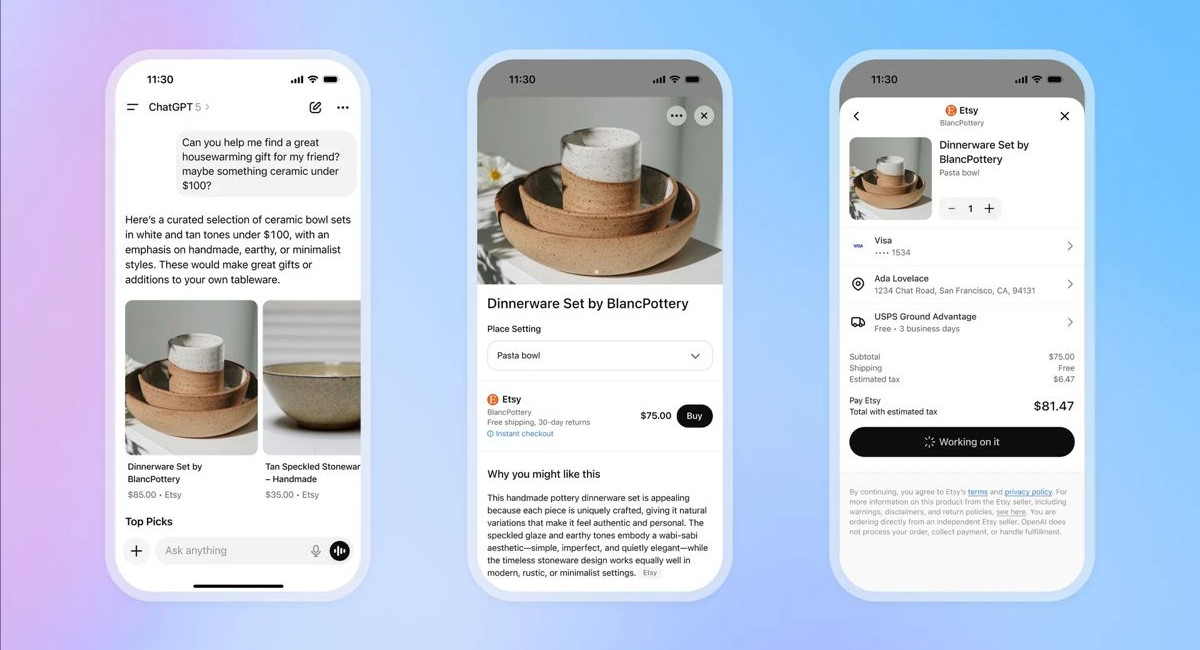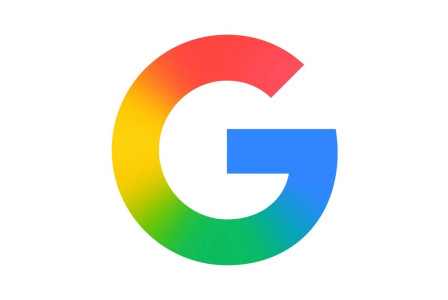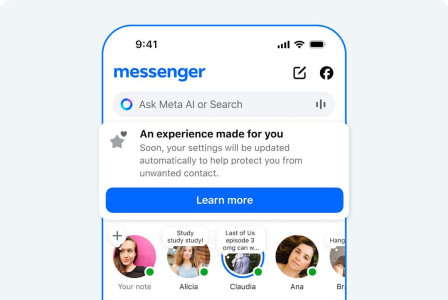SEARCH
ChatGPT enters e-Commerce with Instant Checkout

SHARE IT
What began just a few years ago as a straightforward AI chatbot designed to answer questions and suggest products has now taken a significant leap into the world of online shopping. OpenAI is introducing a new feature called Instant Checkout, which enables users to complete purchases without leaving the ChatGPT interface.
The update marks a major shift in how people can interact with AI tools. Instead of simply pointing users toward products or external websites, ChatGPT will now facilitate the entire purchasing process. The feature is currently rolling out in the United States, where it is available to users on ChatGPT Free, Plus, and Pro tiers. At launch, it supports purchases from US-based Etsy sellers and more than a million merchants operating on Shopify.
For now, Instant Checkout is limited to single-item transactions. Shoppers can tap on a supported product listing, enter their payment and shipping information directly within the chat window, and finalize their order. The merchant still manages fulfillment, payment processing, and shipping through existing systems, while ChatGPT serves as the AI agent guiding the user through the process. OpenAI has confirmed that the feature will gradually expand to accommodate multi-item carts and eventually roll out to more regions and retailers worldwide.
The backbone of this new functionality is the Agentic Commerce Protocol, a framework co-developed with Stripe. OpenAI has announced that the protocol is open source, which means developers and businesses can create their own integrations to work seamlessly across platforms, payment providers, and different retail categories. This move reflects OpenAI’s wider vision of positioning ChatGPT not just as a conversational tool but as a foundation for agent-based commerce.
Importantly, OpenAI stresses that the shopping experience within ChatGPT remains organic. According to the company, search results such as “best running shoes under $100” or “gifts for a motorcycle lover” are not influenced by sponsored listings. Instead, Instant Checkout listings appear only when relevant, without preferential treatment. For merchants, however, there is a financial arrangement: while the feature is free to use for customers, OpenAI collects a commission from completed purchases.
The company also explained how ChatGPT prioritizes results when several merchants offer the same product. Factors such as availability, price, product quality, whether a retailer is the primary seller, and whether Instant Checkout is enabled all play a role in ranking. The aim, OpenAI says, is to optimize the shopping experience rather than push users toward a particular vendor.
With over 700 million weekly users, ChatGPT is one of the most widely used AI platforms in the world. The integration of Instant Checkout positions it not just as a conversational assistant but as a potential disruptor in e-commerce. For consumers, the appeal lies in convenience: instead of bouncing between apps and websites, they can complete the journey from discovery to purchase in a single interface. For merchants, the promise is access to a massive user base coupled with a streamlined selling process.
The arrival of Instant Checkout also highlights a broader industry trend: the rise of agentic AI. These are systems designed not only to respond but to act on behalf of users. OpenAI has already experimented with agentic tools, such as Operator, which can perform tasks autonomously. Google has followed a similar path, embedding agent-driven AI into Pixel smartphones, Chrome, and even its search engine. By embedding transactional capabilities into conversational agents, companies are laying the groundwork for a new form of digital interaction—one where AI moves beyond assistance into action.
Yet the technology does not come without caution. Expanding the role of AI agents into financial transactions raises questions about privacy, trust, and potential misuse. While the protocol underpinning Instant Checkout is open and decentralized, the concentration of commercial activity within a single AI platform could trigger regulatory and ethical debates. OpenAI appears aware of these risks, emphasizing transparency and user control in how the feature operates.
Looking ahead, Instant Checkout may prove to be just the beginning of a much larger transformation. As agent-based commerce matures, the lines between conversational AI and online shopping platforms are set to blur. By embedding purchasing power directly into chat interfaces, OpenAI is betting on a future where consumers rely on AI not only to answer questions but to make decisions and act on their behalf.
For now, the rollout is limited, but the implications are vast. From Etsy artisans to Shopify entrepreneurs, a wide spectrum of businesses is being plugged into ChatGPT’s conversational ecosystem. If successful, Instant Checkout could redefine how we think about shopping online—turning casual chats into direct, frictionless transactions.
MORE NEWS FOR YOU

 Help & Support
Help & Support 

